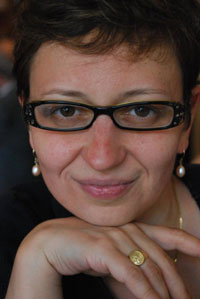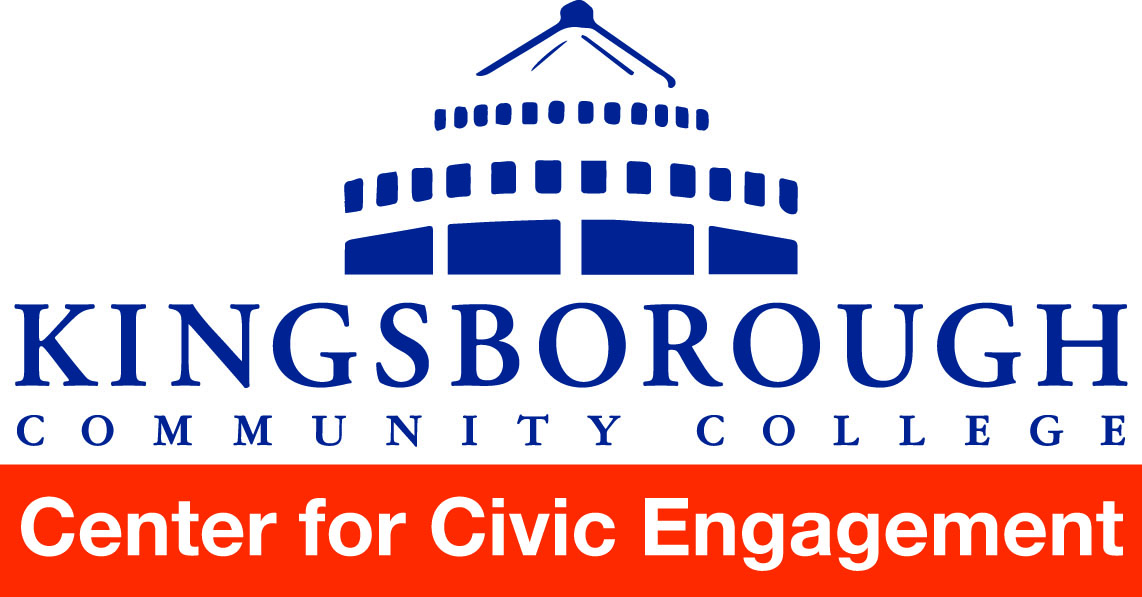In 2012, College Council approved a civic engagement graduation requirement and established the
college as a national leader for civic learning and democratic engagement. In 2013, Kingsborough
officially implemented the requirement. As we approach the 10-year anniversary of civic
engagement at Kingsborough, we want to recognize those who have worked so hard to make this
vision a reality and to push forward with a new initiative. This Call for Proposals asks faculty to
apply to be a Civic Engagement Fellow.
Kingsborough accepts as a fundamental principle that education requires social awareness, an
acceptance of social responsibility and active participation in meeting the challenges of a modern
society. Through civic engagement, we recognize our mutual responsibility to care for
each other in the college, in our communities, and on our planet. This responsibility may be
accomplished through political activity, community service, and engagement in leadership roles,
advocacy or becoming informed about issues that relate to social change. Therefore, civic
engagement at Kingsborough seeks to foster civic awareness while providing the skills needed for
our students to actively participate in their communities.
Three Civic Engagement Fellows will be selected who seek to implement a project that meets the
mission as stated above. Proposals should indicate which domain of civic engagement is most
applicable (see below), a short description of the project including a narrative of no more than one
page, and one to three outcomes. Fellows will be provided 1 credit re-assigned time/or equivalent
stipend (dependent on SP 2023 teaching commitments) and will be provided an introductory
professional development workshop to launch the initiative. Faculty will present their completed
projects at a special Civic Engagement Faculty Forum in the fall of 2023.
Classroom projects should increase student’s political knowledge about our governmental systems
and processes, engage in collaborative projects that connect them to their community to address
social problems, or examine how their major and career path explores issues of diversity, equity
and cultural inclusion. Students are also encouraged to participate in campus-wide events that may
include registering to vote, meeting a local politician, organizing with a social movement,
conducting research to solve an urgent problem, or to learn about what they can do personally to
mitigate climate change. These opportunities help students connect what is important to them with
their academic study. Collectively, these efforts show that Kingsborough is a space dedicated to
taking care of one another, applying principles of democratic practice, and collaborating across
differences to build a community whereby we can study and work to solve urgent public problems.
The Civic Engagement Fellows for the 2023-2024 cycle are:
Dr. Caterina Pierre:

Students are asked to complete a final project with 3 associated scaffolded parts, developed over the course of our 12 week semester to create a visual activist image. This final project, students build on their concept boards and visual concept artwork to write an accompanying written statement about how their visual works relate to their social justice issue. I hope to inspire them to consider in their own work the actions and objects made by artists to promote social justice causes, and to feel comfortable using what they have learned in the class and in their own lives and future careers.
Dr. Midori Yamamura:
| Convert course from the present geographical organization to a thematic organization and include 2 CE topics: homelessness and waste/environmental issues. Students will learn how to organize and better their community by participating in these organizations’ activities. I will invite employers from local green businesses. Students can learn about what they can do personally to mitigate climate change and apply principles that they will learn in their future study or work to solve urgent environmental problems. |
Dr. Joanna Maulbeck:
| We study historical, political, philosophical, and socio-cultural variables that have shaped and continue to shape our education system. I would like students to not only write an advocacy paper but then take it a step further and advocate for their cause in the community…perhaps they could teach a creative lesson in their field placement or work setting. There will be 2 parts: 1) analyze a topic that pertains to teaching and learning through the lenses that we have used in class – historical, political, philosophical, and socio-cultural.They would also research ways that the student can be an agent of positive change and contribution. 2. Students will detail what they have personally done in the spirit of advocacy and why. |
Dr. Julie Turley:
| Student Fellows: provide a space (office) and support for 5 students to enrich and diversify the Library’s outreach initiatives through creating and promoting CE tools and activities. Students would apply or be recommended by a faculty. They would use library resources and librarian support to develop and shape their nascent ideas and create transformative action plans. |


